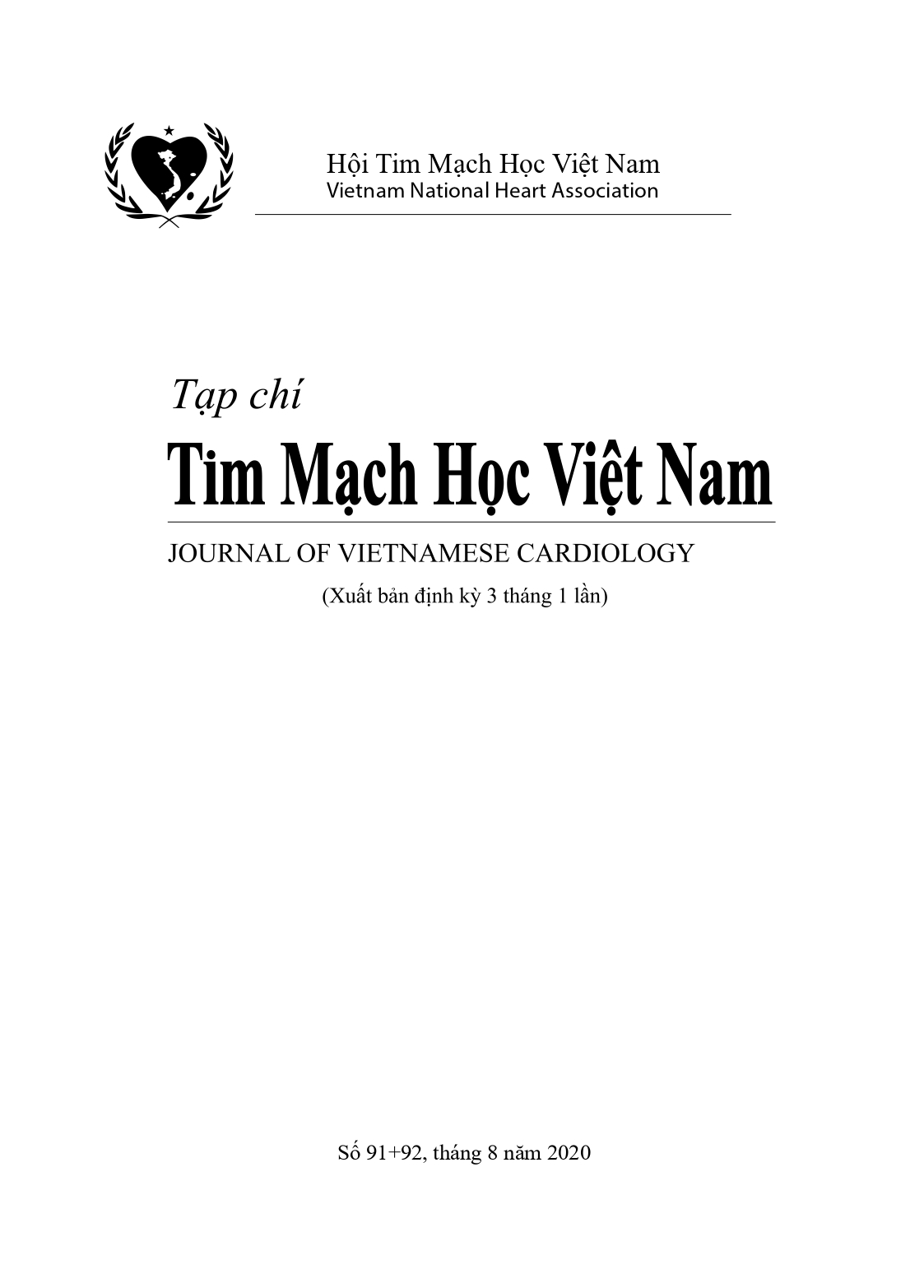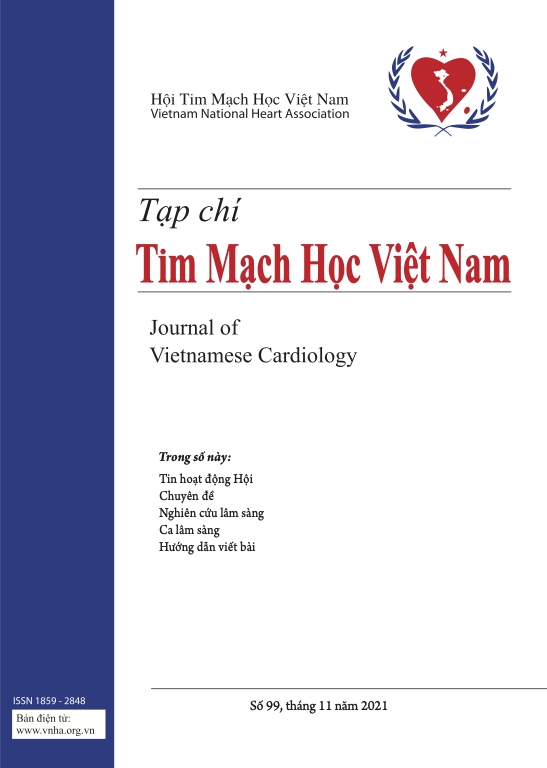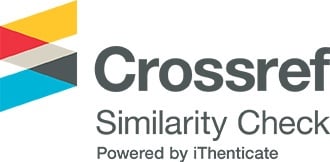Tổng quan về tuân thủ điều trị của bệnh nhân bệnh mạch vành
Tóm tắt
Bệnh mạch vành là một bệnh lý có tỉ lệ tái phát và tử vong cao, trong đó kém tuân thủ điều trị dùng thuốc là nguyên nhân quan trọng. Do đó, chúng tôi thực hiện bài tổng quan với các nội dung chính gồm: (1) thực trạng và ảnh hưởng của việc kém tuân thủ điều trị; (2) các yếu tố ảnh hưởng đến mức độ tuân thủ điều trị và (3) một số giải pháp góp phần cải thiện tuân thủ điều trị. Thực tế, tỉ lệ tuân thủ dùng thuốc ở bệnh nhân còn chưa cao và giảm dần theo thời gian sau khi xuất viện. Điều này làm tăng 50-80% nguy cơ tử vong và do đó đánh giá các nguy cơ làm giảm tuân thủ điều trị để tìm ra các giải pháp khắc phục là rất quan trọng. Theo Tổ chức Y tế Thế giới, 5 nhóm yếu tố ảnh hưởng đến khả năng tuân thủ điều trị là bệnh tật, bệnh nhân, chế độ điều trị, kinh tế xã hội và đội ngũ chăm sóc sức khỏe. Các yếu tố này được phân thành 2 nhóm: không can thiệp được và có thể can thiệp được. Để tác động vào các yếu tố can thiệp được, tư vấn, giáo dục trực tiếp cho bệnh nhân; theo dõi, nhắc nhở qua điện thoại, tin nhắn… là các biện pháp can thiệp được chứng minh hiệu quả.
Từ khóa: Bệnh mạch vành; tuân thủ điều trị; yếu tố ảnh hưởng; can thiệp.
Tài liệu tham khảo
1. Hồ Lê Bảo Ngọc (2015), Nghiên cứu tình hình tuân thủ điều trị của bệnh nhân hội chứng vành cấp trong 3 tháng sau xuất viện tại bệnh viện Đa khoa Trung ương Cần Thơ và Bệnh viện Đa khoa thành phố Cần Thơ năm 2015, Luận văn tốt nghiệp Dược sĩ Đại học, Trường Đại học Y Dược Cần Thơ.
![]()
2. Maddisonetal.Trials (2018), Text4Heart II - improving medication adherence in people with heart disease: a study protocol for a randomized controlled trial.
![]()
3. Anil K. Gehi et al; Self-reported Medication Adherence and Cardiovascular Events in Patients With Stable Coronary Heart Disease - Arch Intern Med. 2007 September 10; 167(16): 1798-1803.
![]()
4. Võ Thị Dễ, Nghiên cứu sự tuân thủ điều trị của bệnh nhân bệnh động mạch vành đã được can thiệp, Luận án tiến sĩ Dược học năm 2013, Đại học Y Dược TP. Hồ Chí Minh.
![]()
5. Han-Yang Chen at al; Adherence to evidence-based secondary prevention pharmacotherapy in patients after an acute coronary syndrome: A systematic review.
![]()
6. Mauri,L.,etal.,Stentthrombosisinrandomizedclinicaltrialsofdrug-elutingstents.N Engl J Med, 2007. 356(10): p. 1020-9.
![]()
7. Zhao,Latefa,Beietal,Cardioprotective medication adherence among patients with coronary heart disease in China: a systematic review, Heart Asia. 2019; 11(2): e011173.
![]()
8. Carney RM, Major depression and medication adherence in elderly patients with coronary artery disease, Health Psychol. 1995 Jan;14(1):88-90.
![]()
9. Huber Daniel et al. Statin treatment after acute coronary syndrome: Adherence and reasons for non-adherence in a randomized controlled intervention trial, Scientific Reports volume 9, Article number: 12079 (2019).
![]()
10. RaniKhatibetal,Adherence to coronary artery disease secondary prevention medicines: exploring modifiable barrier.
![]()
11. Donna West, Leanne Lefier, Amy M Franks et al. Examining Medication Adherence in Older Women with Coronary Heart Disease, Article in Journal of Women & Aging · July 2010.
![]()
12. Thang Nguyen, Thao H. Nguyen , Phu T. Nguyen et al. Pharmacist-Led Intervention to Enhance Medication Adherence in Patients With Acute Coronary Syndrome in Vietnam: A Randomized Controlled Trial.
![]()
13. ZhaoSJ,ZhaoHW,DuS,etal.The impact of clinical pharmacist support on patients receiving multi-drug therapy for coronary heart disease in China. Indian Journal of Pharmaceutical Sciences 2015; 77:306-11.
![]()
JX L, Li Y, Yang L, et al. Study on the effect of Multi-factorid optimized holistic nursing on medication adherence and cardiovascular events of patients with Myocarid infarction. Progress in Modern Biomedicine 2012;12:6714-6.
![]()
14. Fang R, Li X. Electronic messaging support service programs improve adherence to lipid-lowering therapy among outpatients with coronary artery disease: an exploratory randomised control study.
![]()
15. KarlaSantoatal. Medication reminder APPs to improve medication adherence in Coronary Heart Disease (MedApp-CHD) Study: a randomised controlled trial protocol.
![]()
Tải xuống
Đã Xuất bản
Các phiên bản
- 05-03-2023 (2)
- 05-03-2023 (1)








